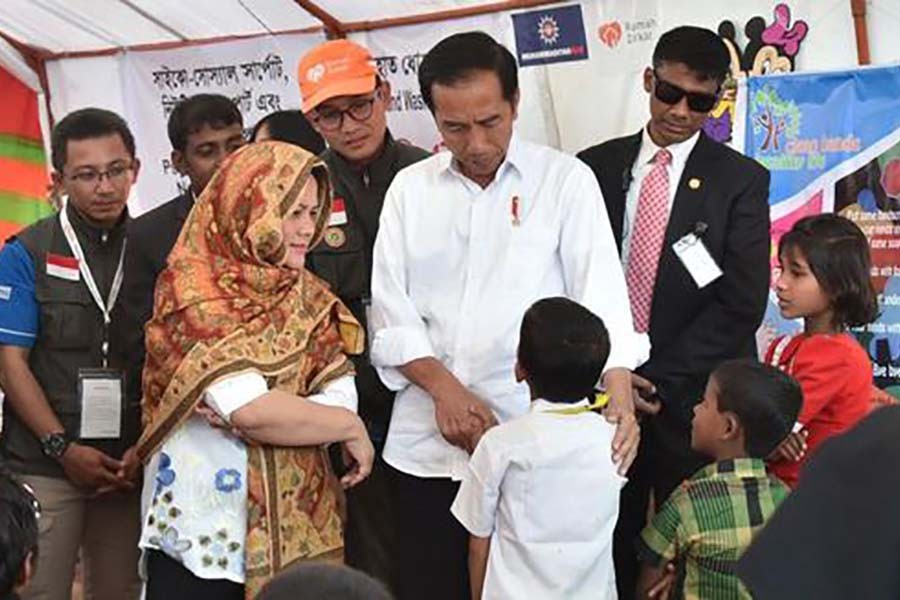Indonesian President Joko Widodo's visit to the Rohingya refugee camps in Cox's Bazar on Sunday demonstrated the biggest Muslim country's steadfast support to the distressed humanity. He virtually made Indonesia distance itself from what Myanmar, a fellow member-state of the Association of Southeast Asian Nations (ASEAN), is doing to the Rohingyas in its Rakhine state.
In fact, when Widodo called for a peaceful and quick solution to the lingering Rohingya crisis, he only conveyed Indonesian pressure on Myanmar.
While visiting a refugee camp, Widodo was quoted as saying Bangladesh has set an example of humanity by sheltering over a million displaced persons from Rakhine state and assured that Jakarta would stay beside Rohingya people always. He highly appreciated the Bangladesh government and its people for the generosity and humanitarian gesture. "Bangla-desh truly deserves appreciation for that."
The early recognition of Bangladesh as an independent and sovereign country by Indonesia on February 25, 1972 is indicative of the support of the people of Indonesia to the 1971 liberation war.
Significantly, during Widodo's talks with Prime Minister Sheikh Hasina, Indonesia has welcomed Bangladesh's desire for institutionalising relations with the South East Asian bloc through Sectoral Dialogue Partnership. The President himself encouraged Bangladesh for a more active engagement with ASEAN.
Signing of five memorandums of understanding reflects keen desire of the two countries to take bilateral ties forward. What is very crucial is that Bangladesh and Indonesia have agreed to launch a negotiation on signing a preferential trade agreement to advance bilateral trade and investment.
A significant progress is yet to be made in trade, commerce and investment between the two countries despite having huge potential. And to take ahead trade and investment, the two sides in the talks have agreed to make negotiation on inking a preferential trade agreement.
Once the deal is signed, Indonesia will give a concession to Bangladesh in exporting goods and it will help reduce trade gap between the two countries. In the fiscal 2016-17, import volume from Indonesia was $1.12 billion, while the export volume was only $46.39 million.
Bangladesh should take the lead in promoting its exports to Indonesia, a country with 257 million consumers. Interestingly, once the Indonesian ambassador led a team of Bangladeshi businessmen for interaction with their Indonesian counterparts which showed their eagerness to boost the bilateral trade.
The Export Promotion Bureau needs to make a survey of what Indonesians want to buy from abroad and help our exporters manufacture those. It is Bangladesh which will be the loser if it lags behind.


